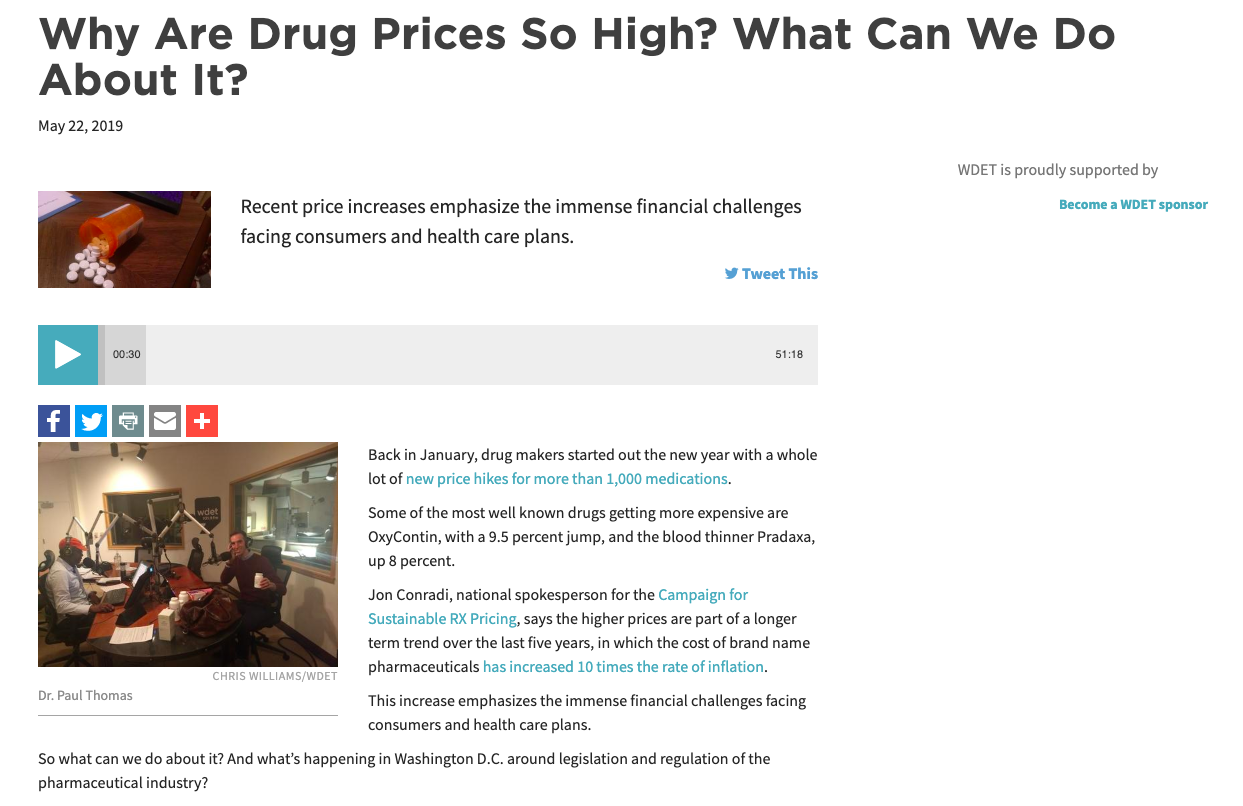Detroit Doctor Lowers the Cost of Prescription Medications
Medication prices are unsustainably high, putting a huge financial burden on every day Americans. In a recent survey, 8% of adult Americans don’t take their medicines as prescribed because they can’t afford them.
In addition, the cost of insulin for an average patient with Type 1 Diabetes doubled from 2012 to 2016. In fact, the cost of medications like insulin are inflating at higher rates than college tuition, college textbooks, and hospital services.
The cost of insulin is increasing at rates far above overall inflation, even outpacing the cost of college tuition and college textbooks.
All of this data is presented to make the point: health care and specifically prescription medications have become more and more unaffordable for average Americans.
Fortunately, there is a better way to get prescription medications. One way is to develop a relationship with a Direct Primary Care physician, who focuses on improving access to affordable health care services, medications, and lab work.
The medications provided by Direct Primary Care doctors are typically given to patients at-cost or at a small markup to cover shipping, bottles, and labels. Direct Primary Care doctors do this because they believe that health care should be affordable and accessible for everyone.
Our Direct Primary Care practice here in Detroit is called Plum Health DPC and we pride ourselves on lowering the cost of medications for our patients. A partial list of these medications and their prices can be found on our Pricing Page as well as by following this link to our PDF of medication prices.
For example, we had a young lady come in to our clinic with an outbreak of HSV or Herpes Simplex Virus that was affecting her genitals. She went to the local pharmacy and requested a course of Valtrex, and she was told that the medication would cost $100. She heard about our clinic, signed up for our services and now is able to get a course of treatment with Valtrex for $1.49.
As another example, we had a diabetic patient who was not actively managing his diabetes because he was scared about how much the medication might cost. He was not seeking medical attention and was not taking any medication at all for his diabetes. Unfortunately, he developed a severe skin infection that required hospitalization. The nursing staff directed him to our clinic and we were able to get his diabetic medication for free through a pharmaceutical program. Additionally, we are able to manage his high blood pressure and high cholesterol for under $5/month.
Because of this type of work that we do for our patients everyday, we have the privilege of being interviewed on WDET’s Detroit Today. This segment will air at 9:00 am on Wednesday May 22nd. Please tune in or share the podcast link to spread the word about how we’re actively lowering the cost of health care and prescription medications in Detroit and beyond.
Thank you for reading and listening,
Dr. Paul Thomas with Plum Health DPC
For more information on this topic, read our previous blog post, titled: How to Find the Best Prescription Drug Prices in Detroit
Detroit doctor, Paul Thomas MD, is using the Direct Primary Care model to the lower the cost of prescription medications in Detroit and beyond
This is an addendum to the Original Post, from WDET’s post:
Henderson also speaks with Dr. Paul Thomas, a primary care physician at Plum Health in Southwest Detroit. Since 2016, Thomas has had his patients pay an affordable monthly membership fee for healthcare and then he gets them their necessary medication at cost. A common blood pressure medication that would normally cost between $5 and $10 when billed through insurance and filled at a pharmacy, is instead costing patients just 27 cents for a month supply.




